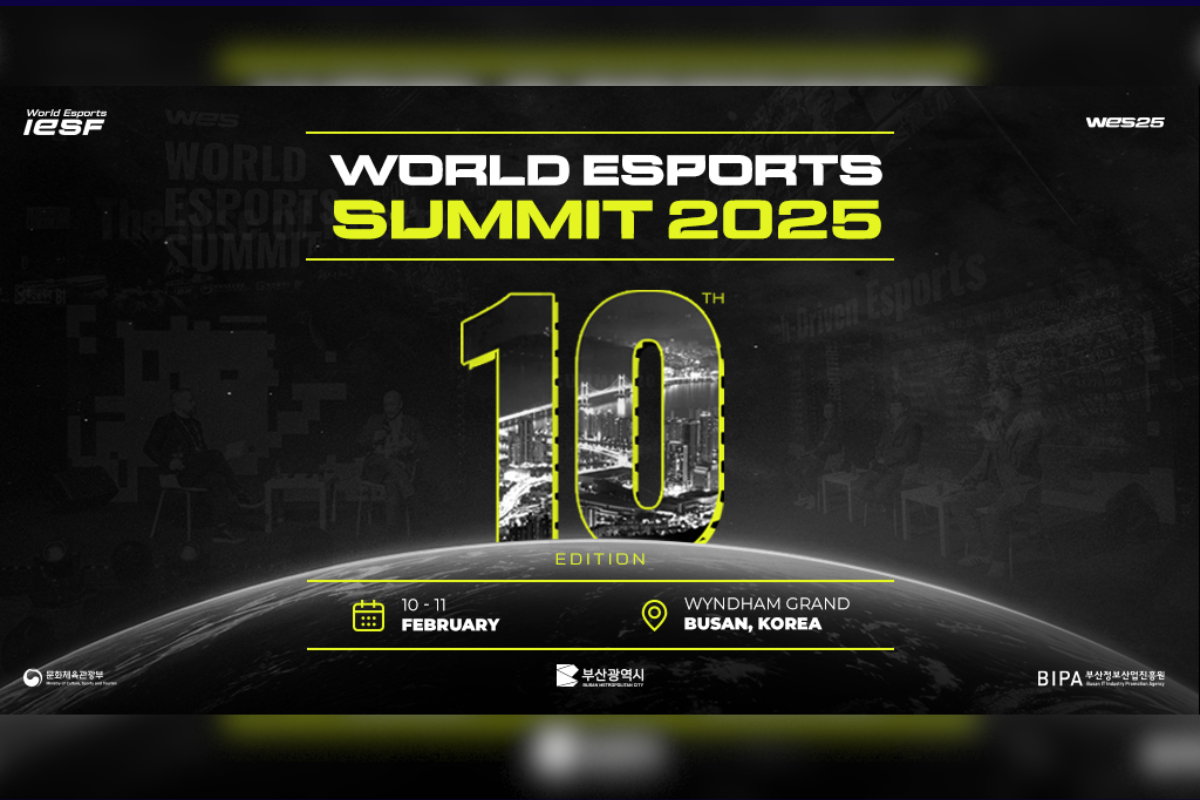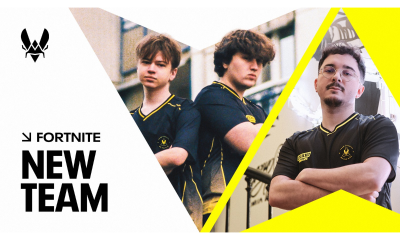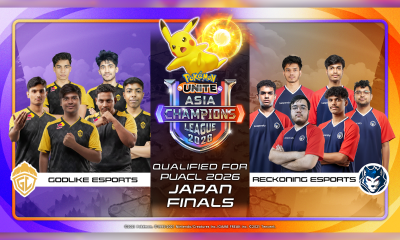Asia
Esports World Cup 2024: Indian Esports Industry Reacts to its Potential as Game-Changer for Country’s Video-Gaming Ecosystem

In a landmark announcement, Mohammed bin Salman, Crown Prince and Prime Minister of Saudi Arabia declared the creation of the Esports World Cup, set to kick off in the summer of 2024 in Riyadh. The event promises to reshape the Esports landscape and enable the sport to usher in a new era of opportunity and competition for gamers worldwide.
The Esports World Cup will be replacing Gamers8, a renowned Esports festival held in Saudi Arabia. In this year’s edition of Gamers8, there were 20 different competitions across titles such as League of Legends, Fortnite, DOTA 2, FIFA 23, Rainbow Six Siege, PUBG Mobile and Starcraft II amongst others.
Furthermore, the event boasted an unprecedented prize pool of $45 million, marking the largest in the history of Esports tournaments. While the titles for the Esports World Cup are yet to be announced, the tournament will include the most popular games in the world across all genres and have the largest prize pool in Esports history, as per the official announcement.
The recently published “India Games Market Report 2023” by Niko Partners states that India is predominantly a mobile-first market, with 96.8% of total gamers playing on smartphones or tablets. With the opportunity to compete in such a high-profile tournament with substantial prize pools, Indian Esports athletes are expected to diversify into various gaming titles that are not that popular within the community, in order to secure a spot at the tournament. This, in turn, will contribute to the growth and diversity of the Esports industry in the country.
Lokesh Suji, Director of Esports Federation of India and VP of Asian Esports Federation, said: “The announcement of the Esports World Cup is indeed a historic moment for the global Esports community. This tournament will serve as a catalyst for change and growth, both on the global Esports map and in India. For a country with a predominantly mobile-focused gaming culture like ours, this event’s massive prize pool and diverse title offerings will undoubtedly motivate our Esports athletes and aspiring gamers to broaden their horizons and branch out to different titles. We see the Esports World Cup as an exciting platform that not only celebrates Esports but also unites the industry’s stakeholders on a global scale.”
According to data from Gamers8, the 2023 edition of the tournament recorded a cumulative viewership of 1.3 billion, with peak concurrent viewers reaching 1 million. The total views reached 2.09 million, and the impressions stood at 3.8 billion. The event also roped in prominent names such as Adidas, Pepsico, Aramco, Razer and many more global brands as official sponsors.
The Esports World Cup’s magnitude is expected to surpass these numbers, providing high visibility and prestige to Indian athletes participating in the tournament. This will undoubtedly lead to attracting more investments from sponsors, legacy brands, and venture capitalists, which will bolster Indian players and the community.
“Esports has always transcended borders and united passionate gamers from around the globe. With the announcement of the Esports World Cup in Saudi Arabia, the Indian Esports ecosystem is on the verge of a transformative journey. The tournament will not only serve as a platform for our incredibly talented players to showcase their skills on the world stage but also foster international collaboration, promote the growth of Esports in India, and inspire a new generation of gamers to chase their dreams. The Indian Esports community is ready to make its mark and this opportunity is the catalyst we’ve been waiting for. Let’s rise, break boundaries, and redefine what it means to be a part of the global Esports family,” said Animesh Agarwal aka 8Bit Thug, Co-founder of S8UL and Founder & CEO of 8Bit Creatives.
Esports in India has witnessed remarkable growth in recent years, with notable achievements in international competitions. In the Asian Games 2022, the nation fielded a historic 15-member contingent, competing in titles like DOTA 2, Street Fighter V: Champion Edition, League of Legends and EA Sports FC Online. Prior to that, Esports also made an appearance at the Commonwealth Esports Championships in Birmingham 2022 where India’s DOTA 2 team even clinched a remarkable bronze medal.
In the 141st session of the International Olympic Committee (IOC) held in Mumbai recently, IOC President Thomas Bach announced their plans regarding the creation of the Olympic Esports Games. With Saudi Arabia’s commitment to the Esports World Cup, India’s Esports talents will have another global platform to showcase their skills.
Mayank Prajapati aka MiKeYROG, who represented India in Street Fighter V: Champion Edition at the recently concluded Asian Games 2022, said: “As an Esports athlete, I see this as a window of opportunity for every gamer across India to proudly represent the country and make a name for themselves on the global stage. Much like in traditional sports World Cups where previously lesser-known athletes rise to prominence and lead their nation to glory, this could be the moment for Esports athletes to shine. The Esports World Cup has the potential to motivate Indian players to push their limits in various titles, thus expanding the talent pool and propelling the entire sector to newer heights.”
Asia
Books on Wheels: DigiPlus Foundation Brings Mobile Library to Boost Literacy Among Aurora’s Young Learners

DigiPlus Foundation continues to champion inclusive learning by empowering young learners in Aurora Province through a meaningful partnership with youth-led volunteer group Sikat Aurora.
Following six months of sustained support for Sikat Aurora’s Abot Ko ang Libro storytelling initiative, an activity that brings reading sessions and learning spaces closer to children in local communities, DigiPlus Foundation and GameZone surprised the group with a new mobile library designed to support their mission beyond a single location. The mobile library will allow Sikat Aurora volunteers to roam across Aurora Province, reaching more children with books, learning materials, and storytelling activities.
The donation strengthens Sikat Aurora’s efforts to uplift nonformal education as a vital complement to classroom learning, especially for children with limited access to books and educational resources. By taking learning on the road, the mobile library transforms storytelling sessions into a scalable, sustainable program that can reach far-flung communities across the province.
RJ Belen, Founder of Sikat Aurora, said: “We are truly grateful for the trust and support of DigiPlus Foundation. This mobile library will help us reach more young learners in Aurora and strengthen our mission of nurturing a love for reading. Through nonformal education, we help support what children learn in school and create spaces where learning feels accessible, enjoyable, and empowering.”
“This will allow us to bring learning to children who may not always have access to educational materials, helping them build confidence and curiosity as they grow.”
Neil Orillaneda, Program Manager for Technology Education of DigiPlus Foundation, said: “Our goal is simple: no learner left behind. By supporting initiatives like Sikat Aurora’s mobile library, we help bridge learning gaps and ensure that children, regardless of location or circumstance, have access to educational resources that support their growth.”
The mobile library donation reflects DigiPlus Foundation’s belief that learning happens not only inside classrooms, but also within communities through shared stories, accessible resources, and partnerships that place children at the center of development.
The mobile library donation is part of a Php 1-million contribution from GameZone during the International Series Philippines (ISP), channeled through DigiPlus Foundation to support a range of community initiatives nationwide. Beyond education, the donation also funds livelihood support for local weavers, health program assistance for the LGBTQ+ community, aid for persons with disabilities in Cebu, and flood rescue equipment for Manila, reflecting a holistic approach to community development that addresses education, health, inclusion, and disaster preparedness.
The post Books on Wheels: DigiPlus Foundation Brings Mobile Library to Boost Literacy Among Aurora’s Young Learners appeared first on Americas iGaming & Sports Betting News.
Asia
World Esports Summit Celebrates Its 10th Edition in Busan

The World Esports Summit returns to Busan, South Korea, for its 10th edition, taking place on 10–11 February 2025.
Hosted at the Wyndham Grand Busan, the Summit will bring together 40+ speakers from the international esports ecosystem, including representatives from federations, publishers, global brands, sports organizations, technology companies, and public institutions.
Over the past decade, the World Esports Summit has provided a platform for dialogue and cooperation among stakeholders shaping the world of esports. The 2025 edition will continue this role, offering space for discussion on current developments, industry challenges, and future directions.
The Summit will feature contributions from a wide range of organizations, including Alibaba, FIBA, FIFAe, Tencent, Moonton, NetEase, FIA, Sportradar, EFG, Good Game, Telekom, among others.
Across two days, participants will take part in keynote sessions and panel discussions addressing topics such as esports governance, international collaboration, industry development, integrity, and the continued convergence of esports and traditional sports.
Further information on the program, speakers, and registration is available on the official World Esports Summit website.
The post World Esports Summit Celebrates Its 10th Edition in Busan appeared first on Eastern European Gaming | Global iGaming & Tech Intelligence Hub.
Asia
Insurgence Gaming Company Expands Grassroots Vision with MOBA Legends 5v5 Discord Play-Ins

Following the launch of its inaugural women-focused VALORANT tournament La Imperia, the Insurgence Gaming Company has announced its second competitive initiative, MOBA Legends 5v5 Discord Play-Ins, a series of open community tournaments created to make organised competition more accessible to emerging players.
While La Imperia introduced a visibility-led invitational format, the MOBA Legends 5v5 Discord Play-Ins take a different approach. The series is built around open participation and will be hosted entirely online, with all tournament operations managed through Discord. This allows teams from across India to compete in a structured setting without the restrictions often associated with invite-only events.
The Play-Ins are designed as a starting point for players and teams who want to experience organised competition. Matches will be played in a 5v5 MOBA Draft Pick format, with scheduling, match reporting, and communication handled through dedicated Discord channels.
The announcement continues Insurgence Gaming Company’s early focus on grassroots esports. The company was created to address gaps in India’s competitive ecosystem, particularly at the amateur and semi-professional level where consistent tournament opportunities are still limited.
Speaking on the launch, Jasper Shabin, Founder of the Insurgence Gaming Company, said: “With La Imperia, we focused on visibility. With the Discord Play-Ins, the focus shifts to access. Competitive players need regular places to play, improve, and test themselves, not just one-off tournaments. MOBA Legends 5v5 is one of the most accessible competitive titles on mobile, which makes it a strong fit for an open, community-driven format.”
Beyond competition, the Discord Play-Ins are also intended to build a sense of continuity. Players will have access to channels dedicated to match coordination, tournament updates, and post-game discussion, helping teams stay connected beyond a single tournament run.
With the MOBA Legends 5v5 Discord Play-Ins, the Insurgence Gaming Company continues to shape its identity around community-first formats, pairing visibility-led initiatives like La Imperia with open competitive pathways that support long-term grassroots growth in Indian esports.
The post Insurgence Gaming Company Expands Grassroots Vision with MOBA Legends 5v5 Discord Play-Ins appeared first on Eastern European Gaming | Global iGaming & Tech Intelligence Hub.
-

 Blueprint Gaming5 days ago
Blueprint Gaming5 days agoBlueprint Gaming unleashes Frankenstein’s Fortune blending dynamic modifiers with multi-path bonus offering
-

 Compliance Updates7 days ago
Compliance Updates7 days agoHow to Apply for a Finnish iGaming License: Gaming in Finland Webinar on Application Steps and Technical Standards
-

 Big Daddy Gaming7 days ago
Big Daddy Gaming7 days agoBig Daddy Gaming® Expands European Footprint After MGA Licence Approval
-

 Latest News4 days ago
Latest News4 days agoGGBET UA hosts Media Game – an open FC Dynamo Kyiv training session with journalists from sports publications
-

 Compliance Updates5 days ago
Compliance Updates5 days agoMGA Publishes Results of Thematic Review on Self-exclusion Practices in Online Gaming Sector
-

 Amusnet6 days ago
Amusnet6 days agoAmusnet Unveils Casino Engineering and Technology Milestones Achieved in 2025
-

 Brais Pena Chief Strategy Officer at Easygo7 days ago
Brais Pena Chief Strategy Officer at Easygo7 days agoStake Goes Live in Denmark Following Five-Year Licence Approval
-

 Dan Brown5 days ago
Dan Brown5 days agoGames Global and Foxium return to the Colosseum in Rome Fight for Gold the Tiger’s Rage™































